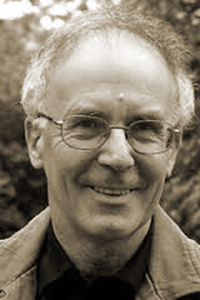Tomaž Šalamun (1941–2014)
 |
||
| photo by Kari Klemela | ||
When Tomaž Šalamun died on December 27, 2014, the world lost a major European poet as well as a radiant, artistic force. The author of several thousand poems—collected in over forty books—in his native Slovenian, Tomaž was staggeringly prolific. He wrote poems as if the act were a natural one. His process, emerging from a dedication to immediacy, led to international acclaim: he received numerous major prizes, and his work has been translated into two dozen languages—to date, thirteen volumes of his poetry have appeared in English alone.
Tomaž attained mainstream recognition in his fifties when he was asked to work for the Slovenian Consulate in New York and various American universities, including several prominent MFA programs, started inviting him to teach for a semester. These professional obligations and the expectations that accompanied them did not have a domesticating effect on his poetry, and his work became more unsettling and anarchic than ever, twisting syntax beyond the breaking point while continuing to relish in utter strangeness. Just as the students who worked with Tomaž were inspired by his example, he was similarly inspired by being with younger poets, who exposed him to youthful energy and new ways of seeing and writing. This two-way inspiration seems key to understanding Tomaž’s effect on American poetry, especially over the past twenty-five years.
After Ecco published his selected poems, edited by Charles Simic, in 1988, Tomaž became something of a cult figure in American poetry, indirectly pushing poets to write more visionary, less tempered poems—an appropriate dynamic considering the effect of American poets like John Ashbery on Tomaž’s own poems. In the 1990s, he started spending more time in the United States, returning regularly until shortly before his death. During this time, he reached numerous poets on a personal level, gaining their admiration and affection with his singular blend of gentility and ferocity as well as his sincere interest in their work. Never content with his knowledge of American poetry, Tomaž was always looking for new poets to champion. As someone who had devoted his life to poetry, he was thrilled when he met others looking to do the same. Beloved and befriended by many, read and admired by even more, Tomaž Šalamun made an indelible mark on American poetry.
—Brian Henry ![]()
Tomaž Šalamun in this issue of Blackbird
Tomaž Šalamun in previous issues of Blackbird


